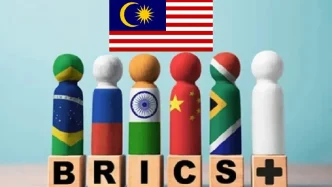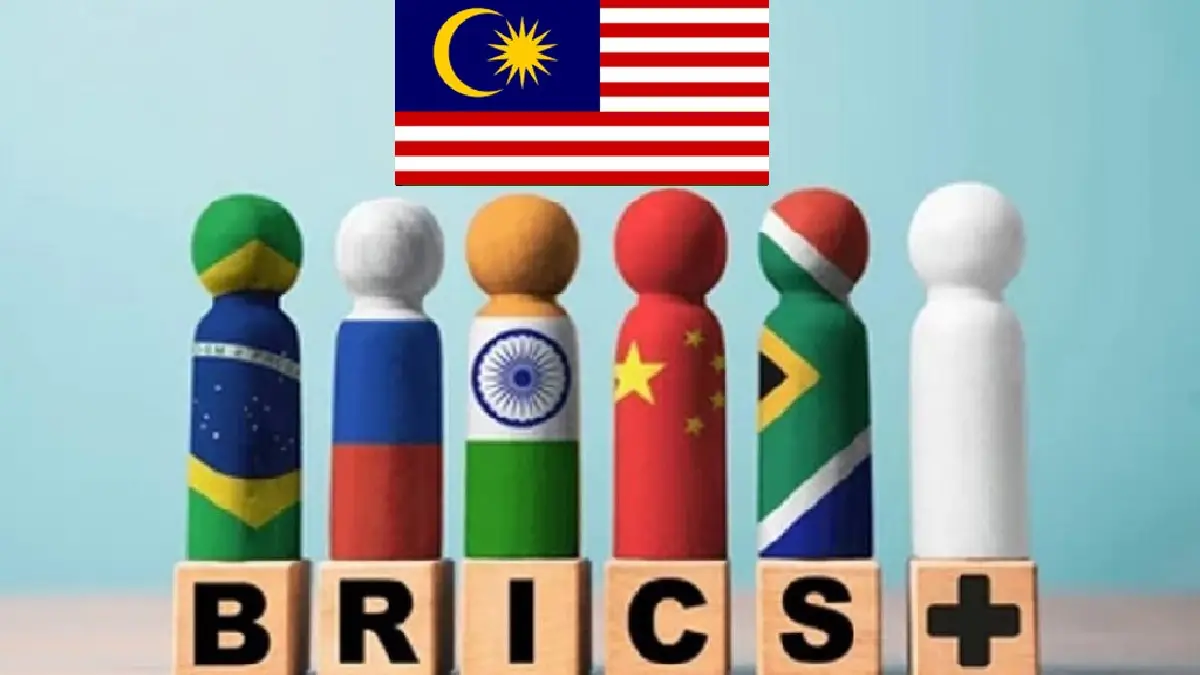Malaysia finds itself at a diplomatic and economic crossroads as it reaffirms its commitment to an independent foreign and economic policy in the face of a stern warning from US President Donald Trump. On July 7, 2025, Trump announced a potential 10% additional tariff on countries perceived to align with the BRICS bloc’s policies, which he described as “anti-American.” This development comes as Malaysian Prime Minister Anwar Ibrahim attends the BRICS Summit in Rio de Janeiro, hosted by Brazil, highlighting the delicate balance Kuala Lumpur must strike between global partnerships and longstanding economic ties with the United States.
Trump’s Tariff Warning and Malaysia’s Response
The US President’s statement, posted on social media on July 7, 2025, explicitly warned that “any country aligning itself with the anti-American policies of BRICS will be charged an additional 10% tariff. There will be no exceptions to this policy.” This pronouncement has sent ripples through nations engaged with the BRICS coalition—an economic bloc comprising Brazil, Russia, India, China, and South Africa, along with partner countries like Malaysia, which officially joined as a partner on January 1, 2025.
In response, Malaysia’s Ministry of Investment, Trade, and Industry (MITI) issued a statement on July 7, emphasizing that the country’s engagement with multilateral platforms, including BRICS, is driven by “trade facilitation and sustainable development, guided by national interest, not ideological alignment.” The ministry underscored the importance of the United States as a key economic partner, pointing to over 50 years of multi-billion-dollar American investments in Malaysia. This careful wording reflects Kuala Lumpur’s intent to maintain robust ties with Washington while exploring opportunities within the BRICS framework.
The US had initially set a deadline of July 9 for countries to agree to a trade deal, but officials have since delayed the imposition of tariffs to August 1, 2025. Trump has indicated that letters will be sent to affected countries, outlining the proposed tariff rates if no agreement is reached. For Malaysia, this extension offers a brief window to navigate the diplomatic tightrope, balancing its economic interests with geopolitical pressures.
BRICS Engagement: A Strategic Move
Prime Minister Anwar Ibrahim’s attendance at the BRICS Summit in Rio de Janeiro on July 5, 2025, at the invitation of Brazilian President Luiz Inácio Lula da Silva, underscores Malaysia’s growing interest in diversifying its economic partnerships. The BRICS bloc, originally formed as an alternative to Western-led economic institutions, has expanded its influence by including partner countries like Malaysia, which seek to leverage the platform for trade and investment opportunities, particularly with emerging markets.
Malaysia’s involvement with BRICS is not merely symbolic. The country aims to tap into the bloc’s focus on sustainable development and economic cooperation, areas that align with its national priorities. However, this engagement has raised eyebrows in Washington, where policymakers view BRICS as a counterweight to US economic dominance. The proposed tariff hike is seen as a direct response to countries deepening ties with the bloc, placing Malaysia in a precarious position as it seeks to assert its sovereignty in foreign policy decisions.
Analysts suggest that Malaysia’s approach to BRICS is pragmatic rather than ideological. The country has a history of pursuing a non-aligned foreign policy, dating back to the Cold War era when it championed the Non-Aligned Movement. This stance allows Kuala Lumpur to engage with diverse global players without pledging allegiance to any single bloc. Yet, the current geopolitical climate, marked by escalating US-China tensions and economic protectionism, complicates this balancing act.
Economic Stakes: US Investments and Trade Ties
The United States remains one of Malaysia’s largest trading partners, with bilateral trade valued at billions of dollars annually. American companies have a significant presence in Malaysia, particularly in the technology and manufacturing sectors, with investments spanning over five decades. These economic ties are a cornerstone of Malaysia’s development strategy, providing jobs, technology transfer, and access to global markets.
Any imposition of additional tariffs could disrupt this relationship, potentially increasing costs for Malaysian exports to the US and affecting industries such as electronics, palm oil, and petrochemicals. For American businesses operating in Malaysia, tariffs could complicate supply chains and raise operational costs, creating a ripple effect across the economy. MITI’s statement on July 7 reflects an acute awareness of these risks, as it seeks to reassure Washington of Malaysia’s commitment to bilateral cooperation.
At the same time, Malaysia’s engagement with BRICS offers potential economic benefits. The bloc represents a significant portion of global GDP and population, providing access to vast markets in Asia, Africa, and Latin America. For a trade-dependent nation like Malaysia, diversifying its economic partnerships is a strategic imperative, particularly as global trade dynamics shift amid rising protectionism and geopolitical uncertainties.
Geopolitical Implications and Regional Context
Malaysia’s predicament is emblematic of the broader challenges faced by Southeast Asian nations navigating the US-China rivalry and the evolving global economic order. Countries in the region, including Vietnam, Thailand, and Indonesia, have similarly sought to balance ties with major powers while pursuing independent foreign policies. For Malaysia, the tariff threat underscores the difficulty of maintaining neutrality in an increasingly polarized world.
Regionally, Malaysia’s BRICS engagement could influence its standing within the Association of Southeast Asian Nations (ASEAN), a bloc that prioritizes economic integration and non-interference. While ASEAN member states have varying degrees of engagement with BRICS, Malaysia’s proactive approach may encourage others to explore similar partnerships. However, it also risks straining relations with the US, a key security and economic partner for many ASEAN countries, including Malaysia, which benefits from US military cooperation and trade agreements.
Domestically, Prime Minister Anwar Ibrahim faces the challenge of justifying Malaysia’s BRICS involvement to a public increasingly concerned about economic stability. Rising costs of living and global economic headwinds have heightened scrutiny of government policies, and any misstep in handling the US tariff threat could have political repercussions. Anwar’s administration must demonstrate that its foreign policy decisions prioritize national interests over ideological or geopolitical alignments.
Looking Ahead: A Delicate Balancing Act
As the August 1 deadline for US tariffs looms, Malaysia is intensifying diplomatic efforts to mitigate potential fallout. Negotiations with US officials will likely focus on reaffirming the mutual benefits of bilateral trade and investment, while clarifying that Malaysia’s BRICS engagement does not signify a shift away from Western partnerships. At the same time, Kuala Lumpur will continue to explore opportunities within BRICS, seeking to diversify its economic base without provoking unnecessary tensions.
The outcome of this diplomatic juggling act remains uncertain. If tariffs are imposed, Malaysia could face short-term economic challenges, though its diversified trade portfolio may cushion the blow. Conversely, successful negotiations with the US could reinforce Malaysia’s reputation as a nimble player on the global stage, capable of navigating complex geopolitical currents.
Beyond immediate economic concerns, Malaysia’s current predicament raises broader questions about the future of global economic cooperation. As blocs like BRICS gain traction, middle powers like Malaysia will increasingly find themselves at the intersection of competing interests. How Kuala Lumpur charts its course in the coming months could set a precedent for other nations grappling with similar dilemmas.
For now, Malaysia remains steadfast in its commitment to an independent path, guided by national interest rather than external pressures. Whether this stance will hold under the weight of US tariffs and geopolitical realities is a question that looms large over Kuala Lumpur’s policy circles. As Prime Minister Anwar engages with world leaders at the BRICS Summit, the stakes for Malaysia’s economic and diplomatic future have rarely been higher.















